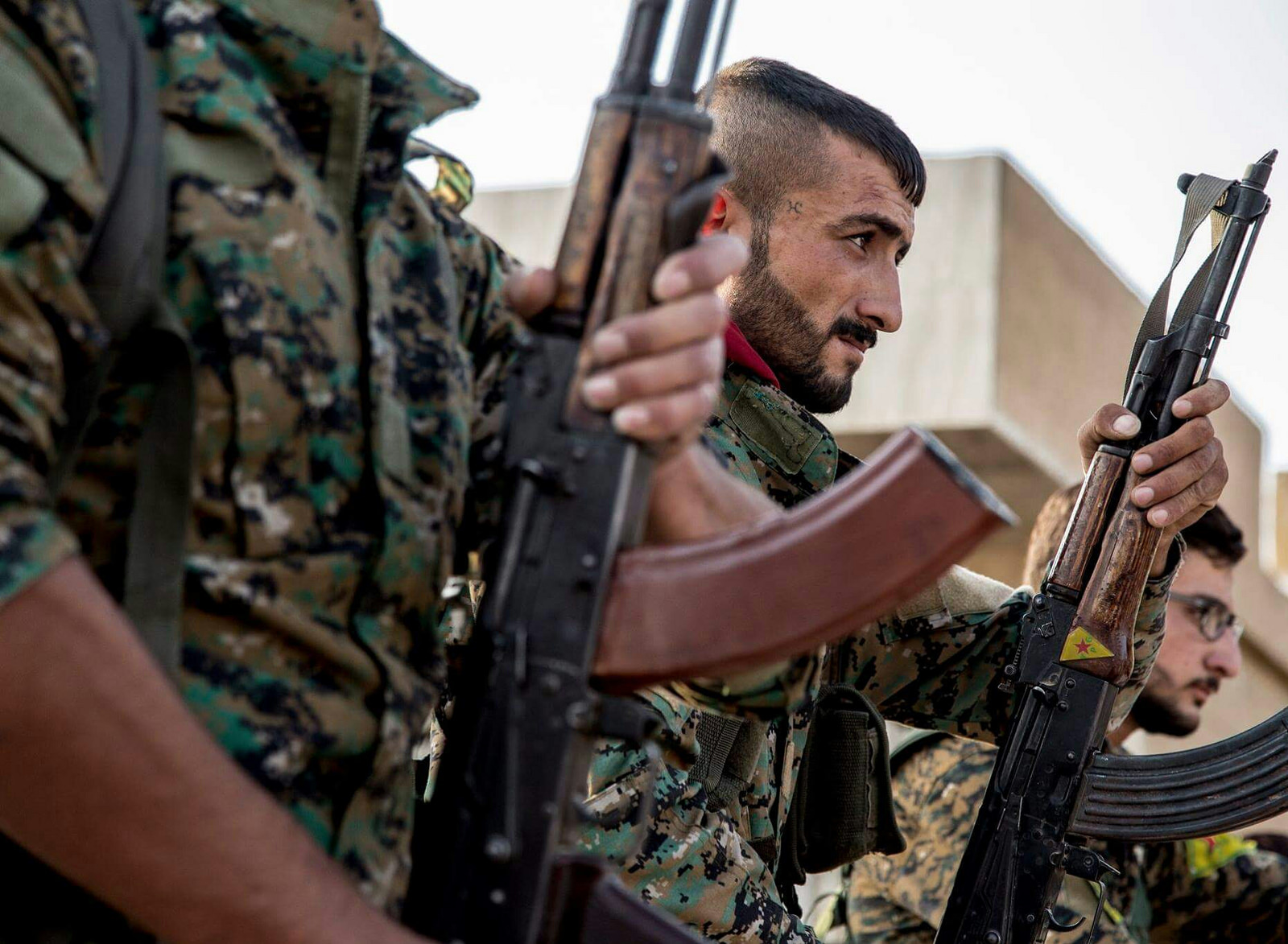March 18 marked the one year anniversary of the conclusion of Turkey’s unprovoked and aggressive invasion of the Kurdish enclave of Afrin in northwest Syria and the beginning of the ongoing occupation of the region. Over the past year, Turkish forces, and their proxy Syrian militiamen, have displaced tens-of-thousands of Kurds, almost half the overall population, from their homes, carried out widespread looting, kidnapped civilians for ransom, tortured others, and intentionally destroyed Kurdish cultural heritage, most infamously the statue of Kawa, a famous blacksmith in Kurdish legend in a truly grotesque Islamic State-like desecration of a cultural object.
The Turkish press, the vast majority of which is now merely a mouthpiece for the official government line, has sought to portray Turkey’s actions in the enclave as a wholly justified counter-terrorism operation against the Syrian Kurdish People’s Protection Units (YPG) group and even a humanitarian endeavour. However, its actions and the actions of its aforementioned Syrian militiamen proxies have harmed thousands of innocent Kurds in the region.
Turkish press reports consistently ignore all of this. They instead highlight some of the humanitarian missions undertaken by Turkey in that occupied enclave. Ankara has indeed carried out some productive projections in the other part of Syria it occupies, the nearby Euphrates Shield zone it captured from the Islamic State in 2016-17. There it has built new roads, repaired infrastructure and provided humanitarian and other assistance that has allowed Syrian refugees to return and live with some semblance of security and stability in their own country, but even there the Turkish-backed militiamen proxies have caused problems.
In Afrin, the bad deeds orchestrated by Turkey and its Syrian proxies far outweigh the good ones. Therefore, highlighting the little bit of good Ankara has done there while completely ignoring or outright denying the bad smacks of very primitive propaganda.
One story Turkish press outlets have touted in unison this month is the use of a new border gate between Afrin and the neighbouring Turkish province of Hatay for delivery of humanitarian aid to the former. The gate was named Olive Branch Gate. Olive Branch was the bizarre operation name Turkey gave its invasion of Afrin.
The Turkish press has also touted the charitable work of Turkey’s Humanitarian Relief Foundation (IHH), which says it has helped 2,000 families in Afrin. This followed the opening of a new health centre in Afrin to help the region’s needy last December. Also, 45,000 students are now attending school each day in Afrin, indicating that things are relatively normal in the region. On top of this, Turkey will also open a branch of its national post office in the occupied region, similar to the kind it has already opened in the nearby Euphrates Shield zone.
Individually, such articles can be read as Turkey attempting to portray itself as a benign altruistic actor. Taken together, however, they read like a frantic and desperate attempt to deny that Ankara is responsible for any wrongdoing at all in the region.
The articles invariably summarize how Turkey cleared or removed YPG “terrorists” from Afrin and “liberated” the region. Some even repeat the abject and laughable falsehood that Turkey also fought the Islamic State, which is a mortal enemy of the YPG, in Afrin.
One particularly disingenuous article in Daily Sabah last January depicted Afrin as being under a “terrorist occupation that led to the destruction of many schools, hospitals and factories” before Operation Olive Branch. The reality was that Afrin was a rare safe haven largely untouched by the Syrian conflict where Syrians from across the country were given sanctuary and shelter by the Kurdish authorities. Afrin, while historically a predominantly Kurdish region, was a melting pot of Syria’s various communities.
Turkey’s actions have started to change this.
Well over 100,000 Kurds are currently living in squalid internally displaced person (IDP) camps in the nearby city of Tel Rifaat. They fear they will be killed or tortured if they attempt to return to their homes. Homes which Turkey’s proxies are eagerly giving to displaced Syrian Arabs in a clear attempt to cement the shifts in the longstanding Kurdish-majority demographics directly caused by Olive Branch. Turkey’s granting of residency to these new arrivals in a part of Syria it invaded and occupies is just another indication, along with its systematic destruction of Kurdish cultural symbols such as the aforementioned Kawa statue, that it wants to eradicate all traces of Afrin’s Kurdish character.
The Yazidis, who were subjected to an infamous campaign of genocide by the Islamic State in the Sinjar region of neighbouring Iraq, have also suffered heavily as a result of Turkey’s actions. Afrin’s already dwindling Yazidi population may well vanish in light of the events of the past year and the continued occupation of their homeland by Islamist fanatics who they fear will brutally murder them.
This is the real story of what is happening in Afrin. Highlighting the minimum good some Turkish institutions are doing in that region while simultaneously denying/ignoring these numerous well-documented human rights violations Turkey is responsible for is a way of actively defending the perpetration of these crimes.
Photo: Kurdish Struggle

